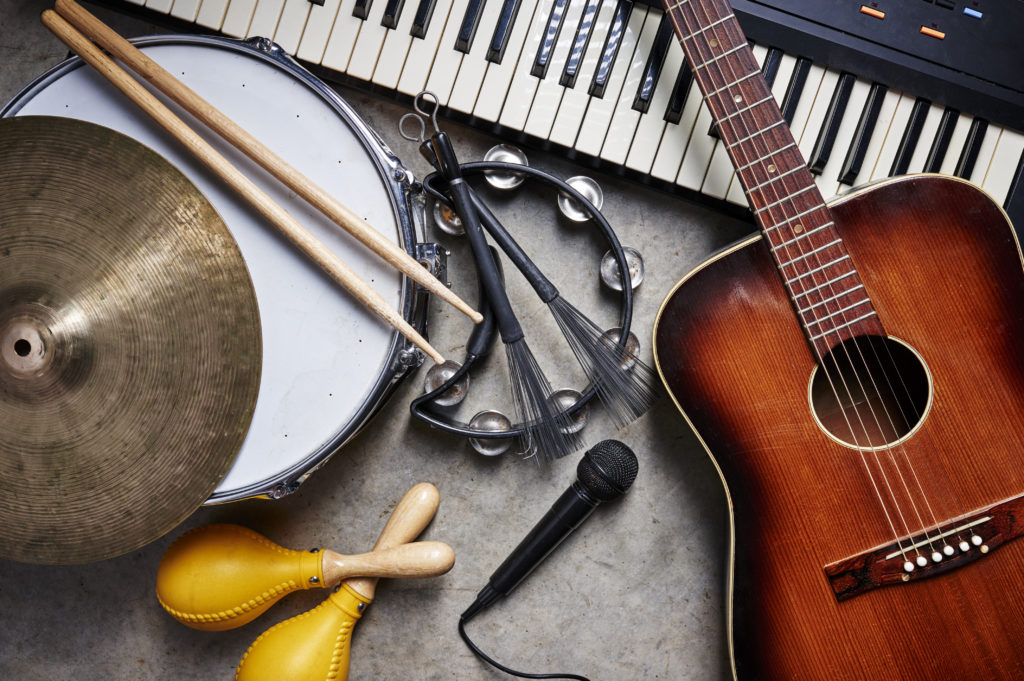What is Music Technology?
Music Technology is the study of the use of any device, machine, or tool by a musician or composer to make or perform music. Students interested in careers in Music Technology will study the use of these mechanics to produce and perform their own music.
What 3rd Level Courses are Available?
- Universities and colleges in Ireland are offering courses in the following subject areas:
- Music Education – the study of the mechanics of music and music theory for application in a classroom or academic setting.
- Performance – the practice of a particular musical instrument specifically for application in performance in concerts, recordings, etc.
- Sound Design – the study of producing sound and music for theatrical productions.
Studying Music Technology in College
Most first year study involves an overview of the subject. This will offer students an introduction to the foundational principles of music technology, including music theory, history, performance, and musicianship.
Depending on the focus of their music technology studies, students will likely move from exam-based modules to more hands-on production and performance modules. Most performing arts courses will combine exams, written assessments, dissertations, recitals, and concerts as benchmark assessments for students.
Most undergraduate Music courses in Ireland run for three or four years. In some cases universities will facilitate work or internship experience as a facet of their program.
It is common that all performing arts-based courses will require students to complete long-term research or performance projects including a final Capstone project. This will ensure the completion of a rigorous curriculum and prepare students for postgraduate studies or for their careers in Music Technology.
A bachelor’s degree in Music Technology studies is adequate for many careers in the music industry. For example, graduates with a bachelor’s degree may start working in music education, sound design, and arts administration.
Career Options
Graduating from college with a degree in Music Technology will serve you well as it equips you with a unique and marketable skill set. A performing arts degree teaches students how to think both critically and creatively as well as equipping them with invaluable performance and communication skills.
Many recent graduates have entered into ‘entry-level’ careers in Music working as educators, performers, and sound engineers.
Other jobs that require a higher degree of responsibility will typically require further education, training, and/or experience to qualify for.
Related Jobs Include:
- Performer / Recording Artist
- Producer
- Media Consultant
- Arts Administrator
- Music Educator
- Musical Therapist
- Sound Engineer
- Sound Designer / Technician
- Musicologist
- Composer / Song-writer
Further Study
An undergraduate degree in music technology studies is often the first step towards further postgraduate study. Postgraduate students will often specialize in their preferred instrument, genre, or period of music history for this secondary degree.
Visit postgrad.ie for more information.
FAQ
- What points do I need to study Music Technology?
- Different courses and different colleges will have different entry requirements. It’s always best that you check with the individual higher education institution which is available on their websites. As a general rule Leaving Cert students should have a minimum of six subjects which should include: Two H5 (Higher Level) grades and Four O6 (Ordinary Level) grades or Four H7 (Higher Level) grades. Subjects must include Mathematics, English, Irish or another language. Some universities also suggest that students pursuing careers in music have a grade H4 in Leaving Cert Music or the equivalent of grade 5 ABRSM Music Theory.
- Are there any particular qualities you need to study Music Technology?
- Students interested in careers in music will need to be passionate about music and its impact on society as well as be interested in developing, producing, or performing music. Additional students will need to be innovative, driven, creative, and collaborative.
- Where can I study Music Technology?
- Explore your options here.
Did You Know?
- The first microphone was invented in 1877 by British telegraph pioneer David Edward Hughes, though the patent for the invention was later secured by Thomas Edison.
- The Vocoder, a device used to manipulate a singer’s pitch, was an essential tool used by President Eisenhower to mask trans-Atlantic communications during WWII, though now it is more widely used by performers such as Cher, Daft Punk, and T-Pain.
- Perhaps one of the most accessible music technology tools, Apple’s GarageBand software was originally introduced in 2004 after the company acquired the German brand Emagic.












Comments